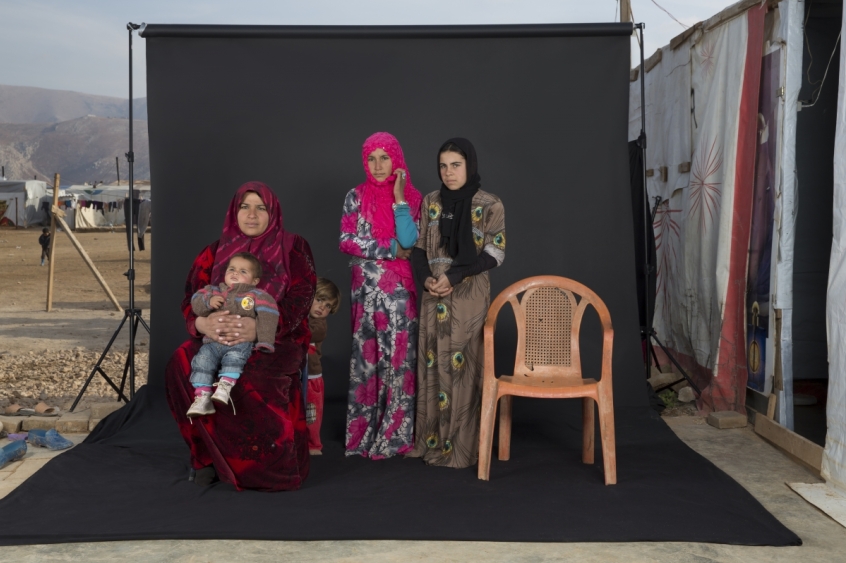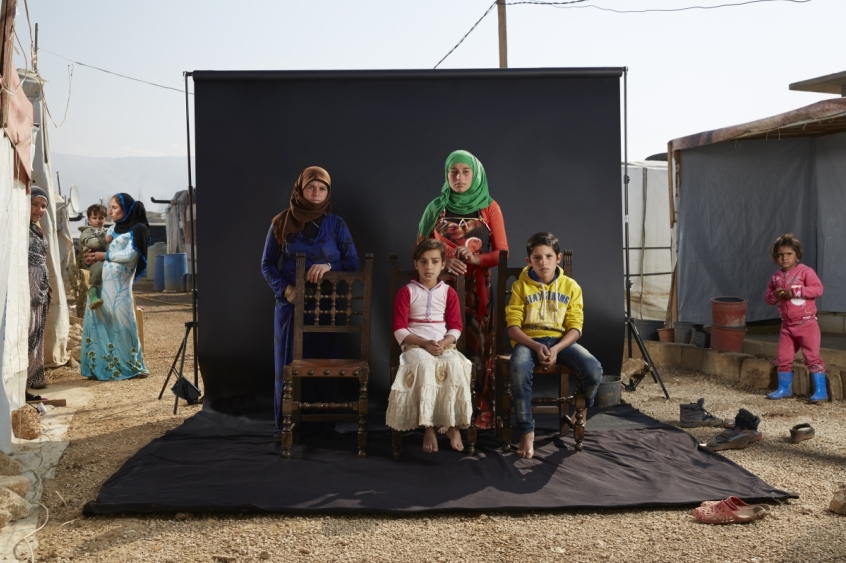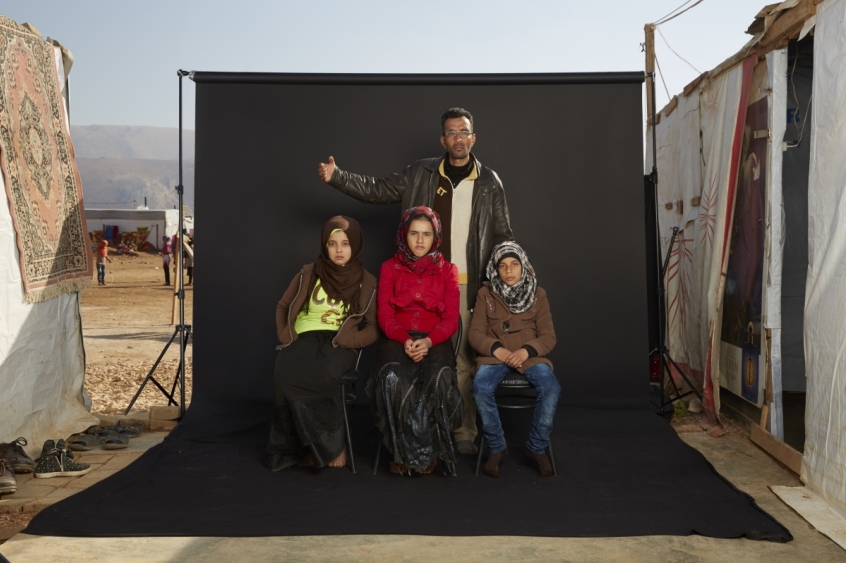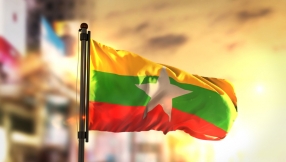Ammouna and her family sit in front of a black fabric backdrop, typical of a studio photograph.
Except this isn't a classic family portrait. Behind them, a refugee camp is visible, and an empty chair sits beside Ammouna's. It represents that her father is missing – the family were forced to leave him behind when they fled to Lebanon from Syria.

The portrait, from a series shot in 2015 entitled Lost Family Portraits, is among images featured in this year's World Press Photo Exhibition at London's Royal Festival Hall.
The series was devised in collaboration with creative agency M & C Saatchi and award-winning photographer Dario Mitidieri as part of Catholic aid agency CAFOD's Syrian Refugee Crisis Appeal. It highlights the plight of Syrian refugee families in Lebanon's Bekka Valley who have lost a loved one – symbolised by empty chairs or unfilled arms.

Another photo shows 44-year-old Khawle and her three children. "It took us three days to get here," she recalled. "The bus dropped us on the mountain and we had to walk the rest of the way."
Khawle's 11-year-old daughter, who has a learning disability, was beaten so badly by armed men that she couldn't move for days.
Sadly, Khawle's youngest child was left behind with her mother. "I couldn't bring all the members of my family with me... The bombs stopped us from being together," she said.
"Children are sad here, there is nothing for them to do, and there is no means for me to earn money.
"Perhaps we might stay like this for the rest of our lives. I don't have anything to be happy for, just to live like this, here in our tent. I feel sad to be here without all my children."
Of the portrait, she added: "A photograph speaks of family happiness, everyone smiling together. This photograph is full of tears."

Mahmoud, 35, lost his wife when a missile struck their home. Two weeks later, he and his daughters fled as more bombs rained on their town. "I knew we had to leave. I told the girls to come with me and we left with nothing – just the clothes we were dressed in," he said.
The loss of their mother has deeply affected the whole family. Mahmoud's youngest daughter, Rama, is struggling at school, and has shrapnel embedded in her arm from a recent airstrike.
"We are so sad and in a bad way. We're alive, but we have nothing," Mahmoud said.
"I worry about my daughters' futures. What do they have? They tell me, 'We have no future', but I tell them, 'The war will end soon.' We have to pray for this."
CAFOD hopes to reveal the emotional impact of the Syrian conflict on the hundreds of thousands of people who have been forced to flee their homes since the war began in 2011.
"Lost Family Portraits is a challenging and thought provoking statement highlighting the human cost of war," said Nana Anto-Awuakye, head of world news at CAFOD.
"The unrelenting nature of the conflict in Syria is heart-breaking to behold but it is absolutely crucial aid agencies continue to find innovative ways to keep this issue at the forefront of public consciousness.
"We are pleased that Lost Family Portraits has been recognised for its impact and would encourage the public to visit the exhibition."
Mitidieri praised CAFOD for its commitment to supporting Syrian refugees in Lebanon.
"My biggest thank you goes to the families, who despite their unimaginable tragedies, and fear of repercussions, agreed to tell their stories and be photographed with such dignity and courage," he added at the exhibition's private launch.
The World Press Photo Exhibition is free, and is open now until November 21.













